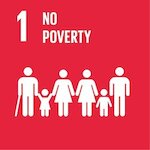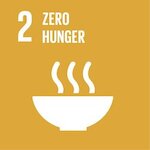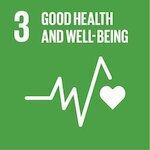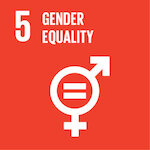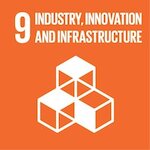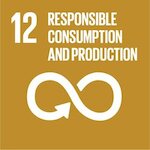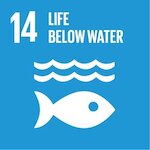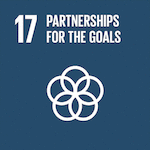The 2030 Agenda for Sustainable Development provides a shared blueprint for prosperity for people and the planet, now and into the future. At its heart are the 17 Sustainable Development Goals (SDGs), which are an urgent call for action in global partnership. The Glolitter partnerships Project contributes to the SDGs below through objectives and activities directly aligned and related to SDG 14.
SDGs central to the Glolitter Partnerships Project
Gender Equality
Sustainable Development Goal 5 - Achieve gender equality and empower all women and girls.
GloLitter works with IMO’s Women in Maritime programme and encourages its participating Member States to open the doors of their GloLitter governance and activities to enable women to take part or train alongside men and so acquire the high-level of competence that the maritime industry demands.
The programme includes the Joanna Toole GloLitter Partnerships Grant, managed by the Ocean Conservancy. Launched in 2021, the grant provides financial support to selected women-led projects/initiatives in developing countries working to address marine plastic litter and Abandoned, Lost or Otherwise Discarded Fishing Gear in the fishing sector. In addition, the GloLitter Partnerships Project supports seed funding initiatives in select pilot countries to empower women's engagement in marine plastic litter management in small scale fishing communities. Information about the grantees can be found via the Ocean Conservancy.
Life Below Water
Sustainable Development Goal 14 - Conserve and sustainably use the oceans, seas and marine resources for sustainable development.
The GloLitter Partnerships Project supports conservations and sustainable use of marine ecosystems and resources specifically by mitigating sea-based marine plastic litter. While GloLitter activities support a variety of SDG 14 targets, they specifically support target 14.1: By 2025, prevent and significantly reduce marine pollution of all kinds, in particular from land-based activities, including marine debris and nutrient pollution.
IMO regulations cover all aspects of international shipping - including ship design, construction, equipment, manning, operation and disposal - to ensure that this vital sector remains safe, environmentally sound, energy efficient and secure. Implementing and enforcing the conventions and regulations adopted by IMO Member States actively addresses marine pollution from sea-based sources. Under the GloLitter Partnership Project, several guidance documents as well as training webinars are being offered which are aimed at improving practices within current Port Reception Facilities and the development of Port Waste Management Plans that comply with marine environment protection regulations. The resources developed under the project have been made publically available for all countries to use. Participating countries will be identifying collaborative opportunities for further activities withtheir Lead Partner Countries, while all Lead Partner Countries will be supported through the development of a National Action Plan to help with the implementation of the IMO Action Plan on Marine Plastic Litter and the FAO Voluntary Guidelines for the Marking of Fishing Gear. Select Lead Partner Countries will have the opportunity to be involved in port demonstration activities.
In addition, the GloLitter Partnerships Project addresses sea-based marine plastic litter from the fisheries sector through associated trainings and twinning activities, as identified above. Activities also support legal, policy and institutional reforms, the development of knowledge products to raise awareness of sea-based marine plastic litter, particularly in the form of abandoned, lost or otherwise discarded fishing gear (ALDFG); ongoing research to fill knowledge gaps around sea-based marine plastic litter including ALDFG; and the empowerment of women to manage marine plastic litter.
Partnerships
Sustainable Development Goal 17 - Strengthen the means of implementation and revitalize the global partnership for sustainable development.
Sustainable development goal 17 calls for global partnerships to support the achievement of the sustainable development goals in all countries, in particular Developing Countries and Small Islands Developing States. IMO actively pursues specific partnerships with its Member States and others to execute projects or initiatives at both regional and global level. The GloLitter Partnership Project facilitates cooperation between participating countries by developing regional partnerships. One way this is achieved is through activities such as regional workshops, supported and hosted by a Lead Partner Country, in which Partner Countries have the possibility to identify shared aspirations and join or 'twin' with a Lead Partner Country to develop a unified or synergistic response to implement measures against sea-based plastic litter.
